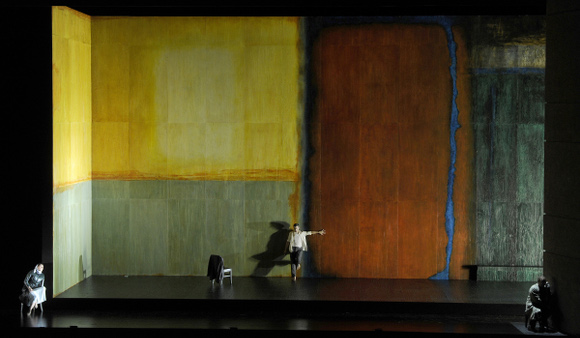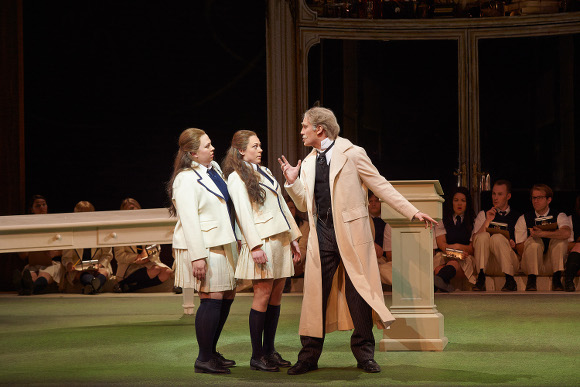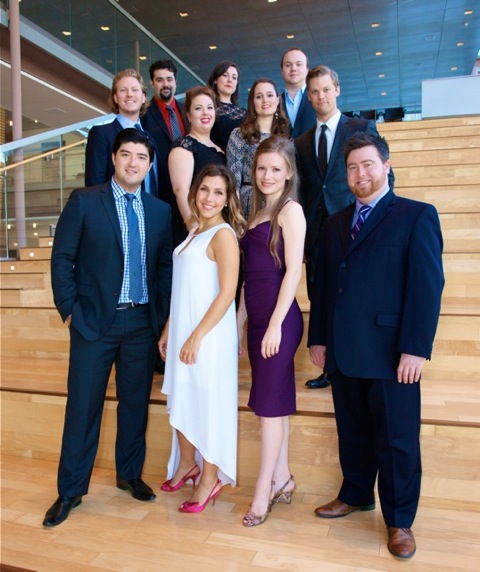VOICEBOX: Opera in Concert presented Mozart’s early opera Lucio Silla yesterday at the St. Lawrence Centre. Inevitably it was in a much reduced version (the original is insanely long) coming in at around two hours and organised into two acts. Tis left the principals with maybe three arias each plus a few ensemble numbers. It was presented off book but with a very minimalist production; piano at the centre of an otherwise empty stage, some atmospheric projections, basic blocking and some sort of hybrid of costume and concert wear. It actually worked rather well. This is very much a “tell” rather than “show” opera and fancy scenic effects weren’t really required.










